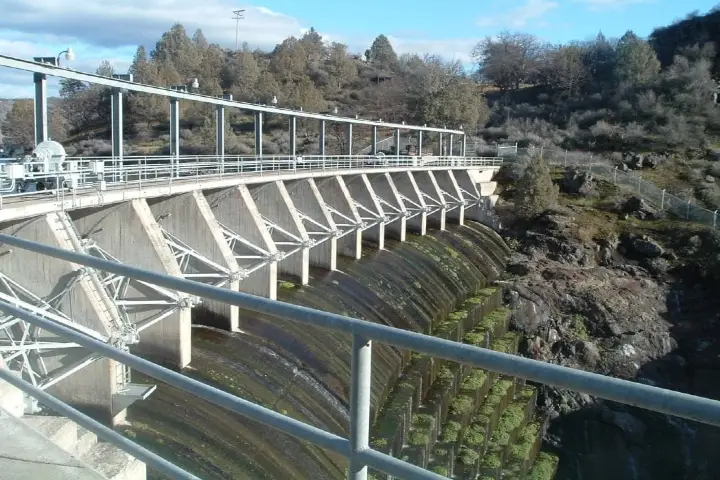

Copco 1 is one of the four dams which will be demolished paving way for restoration of salmon
One keeps hearing and reading news about how proposed dams are going to adversely affect the environment of a region. Contrary to that, the headlines about the demotion of four aging dams in the United States paving the way for restoration of salmon fish, is indeed surprising.
As per a report in smithsonianmag.com the removal of these dams on Klamath river in Oregon and California — Iron Gate, Copco 1, Copco 2 and JC Boyle — will revive several miles of salmon habitat while helping the river to recover.
The dismantling of the dams will begin in 2023 and will take place in 2024.
Environmentalists and native American tribes have been campaigning for the demolition of these dams.
Commenting on this, Joseph James, Chairman of the Yurok tribe observed: “The Klamath salmon are coming home. The people have earned this victory, and with it, we carry on our sacred duty to the fish that have sustained our people since the beginning of time.”
From the early 20th Century, the population of Chinook salmon in the Klamath have decreased more than 90 percent while the same is the case with other species of native fish. The change in climate has made the river water warmer allowing parasites to flourish and the wildfire debris in it has resulted in killing of thousands of fish. Dams have escalated water warming, blooming of algae and inertness of the river. So precarious was the population of Chinook salmon, that in 2021 it was listed as an endangered species under the California Endangered Species Act.
Bigger than the Pacific salmon, the Chinook salmon reach 3 feet in length and weigh 13 kilograms while the biggest ones can reach 4.9 feet and weigh 58.5 kgs.
These fish are important for the tribes in the region both culturally and as part of their diet. Highlighting this point Craig Tucker, Natural Resources Policy advocate for the Karuk Tribe to the Los Angeles Times said: “The tribes here — this includes the Yurok, the Karuk, the Hoopa, the Shasta, the Klamath tribes — they were salmon people. Salmon were part of their subsistence, part of their culture, part of their spiritual life, and so losing those fish has a lot of consequences. Some of it is just nutrition and health, but some of it is really a loss of cultural identity. Removing these dams will reverse those trends and make sure that salmon survive into the future, and that these tribal cultures continue to survive into the future.”
For Chrysten Rivard, Director for Trout Unlimited, the Klamath River represents “how dams, drought, imbalanced water management and climate change can strangle a river”. “Now, the Klamath is poised to become a prime example of how an entire river system, and the people and wildlife that depend on it, can be renewed,” she added.
The dams generated electricity for 70,000 homes only but that did not happen because of low water level in the river. Their share in the utility PacifiCorp power supply is a mere 2 per cent. Further, the company paid millions for upgradation which included fish screens and ladders to fulfil environmental regulations. All this made the company agree for the demolition.
India's coal imports fell by 7.9 per cent, totalling 243.62 million tonnes (MT), compared to…
At least 88 illegal Bangladeshi migrants have been traced and detained by teams of South…
Japan has accused China of conducting maritime scientific research without prior notification within its exclusive…
Indian businesses are aiming exports to the tune of USD 1 trillion in the current…
Border Security Force (BSF's) Assistant Commandant Neha Bhandari commanded a forward post along the International…
The French Ambassador for the Ocean and French President's Special Envoy for the United Nations…